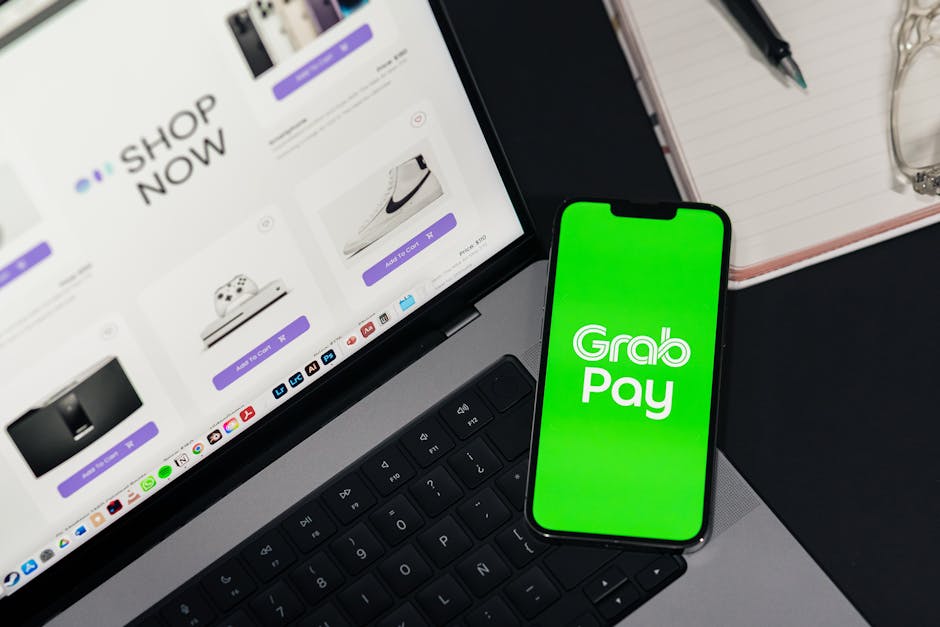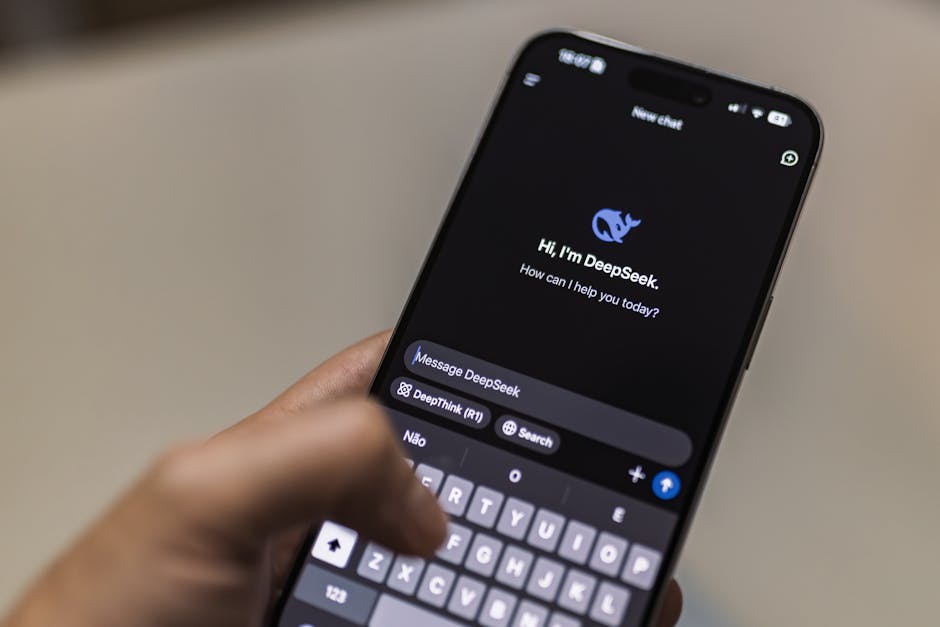Challenges for Coaches and Creators
Challenges have become a cornerstone for coaches and online creators looking to engage their audience, provide value, and build a thriving community. In 2025, the landscape for these interactive programs continues to evolve, offering innovative ways to connect with clients and drive meaningful transformation. Whether you’re a fitness coach, a business mentor, or a personal development guru, challenges offer a structured, time-bound pathway for participants to achieve specific goals, often leading to higher engagement and better results than traditional course formats.
The appeal of challenges lies in their ability to foster accountability, create a sense of community, and deliver quick wins. For creators, they’re a powerful tool for lead generation, audience nurturing, and even direct monetization. As the digital space becomes more crowded, standing out requires offering unique, results-oriented experiences, and well-designed challenges fit this need perfectly. We’ll explore various challenge ideas, delve into market trends, and provide actionable advice to help you create impactful programs.
Why Challenges Work for Your Audience
Challenges resonate with participants because they offer clear objectives and a supportive environment. They break down larger goals into manageable steps, making success feel more attainable. This structured approach helps overcome common barriers to progress, such as procrastination or feeling overwhelmed.
- Clear Goal Setting: Participants know exactly what they’re working towards from day one.
- Built-in Accountability: Daily tasks and community interaction keep participants on track.
- Community Support: Group challenges foster peer encouragement and shared experiences.
- Measurable Progress: Short-term challenges provide tangible results, boosting motivation.
- Skill Development: Participants acquire new habits or skills within a defined timeframe.
Benefits for Coaches and Online Creators
For you as a coach or creator, challenges are more than just a way to help your clients; they’re a strategic business tool. They can significantly impact your reach, revenue, and brand reputation. By offering a compelling challenge, you can attract new leads, convert them into paying clients, and build a loyal following.
- Lead Generation: Challenges serve as an excellent entry point for new audiences.
- Audience Engagement: High interaction rates build stronger relationships with your community.
- Monetization Opportunities: Challenges can be free lead magnets or paid premium offerings.
- Brand Authority: Successfully run challenges position you as an expert in your niche.
- Content Creation: Challenge content can be repurposed into courses, workshops, or membership programs.
Market Trends Shaping Challenges
Understanding the current market trends is crucial for designing challenges that resonate in 2025. The coaching industry is experiencing significant growth, with projections indicating continued expansion. This growth is fueled by an increasing demand for personalized guidance and skill development across various domains.
The global coaching industry is projected to reach $7.30 billion in 2025, up from $6.25 billion in 2024, representing a compound annual growth rate (CAGR) of 17% from 2019 to 2025, according to the Robin Waite Coaching Industry Report 2025. This expansion highlights a fertile ground for coaches and creators to offer structured programs like challenges. The average annual revenue for active coach practitioners is $49,283 USD from coaching activities, with an average charge of $234 USD per hour, as reported by Luisa Zhou’s 2025 Coaching Statistics.

Digital Coaching and AI Integration
A significant trend is the increasing adoption of digital coaching platforms and artificial intelligence. Luisa Zhou’s 2025 Coaching Statistics indicate that 47% of coaches already use digital coaching platforms. The market for these platforms is expected to reach $4.5 billion by 2028, growing at a CAGR of 13.03%, according to Verified Market Research. AI is also playing a larger role, with 65% of businesses regularly using AI. Coaches are leveraging AI for automated scheduling, customer support, and creating interactive challenges, as noted by Luisa Zhou. This allows for scalability and personalized client support.
- Hybrid Coaching Models: A 2025 AI coaching pilot by BetterUp found that 51% of employees preferred a hybrid AI-plus-human coaching model, compared to 34% who preferred only human coaches, according to Business Insider 2025.
- Personalized Content Delivery: AI can tailor challenge content and feedback to individual participant needs, enhancing engagement.
- Automated Follow-ups: AI tools can manage reminders, progress tracking, and basic Q&A, freeing up coaches’ time.
- Immersive Experiences: New technologies like VR and AR are being explored for immersive coaching, such as relaxation in virtual environments, as highlighted by CoachHub.
Wellness Coaching and Holistic Approaches
Wellness coaching continues to be a strong area for challenges, with a growing emphasis on holistic well-being. This includes not just physical fitness but also mental health, emotional intelligence, and spiritual growth. Challenges that integrate multiple aspects of wellness are particularly appealing.
Emerging trends in wellness coaching include personalized digital coaching and the use of new technologies for immersive experiences, as discussed by CoachHub. This means challenges can go beyond simple workout routines to include mindfulness practices, nutrition guidance, and stress management techniques.
| Metric | 2024 Projection | 2025 Projection | Source |
|---|---|---|---|
| Active Coaches | 145,500 | 167,300 | Robin Waite Coaching Industry Report 2025 |
| Global Coaching Revenue | $6.25 Billion | $7.30 Billion | Robin Waite Coaching Industry Report 2025 |
| Digital Coaching Platform Market | N/A | $4.5 Billion (by 2028) | Verified Market Research |
| Executive Coaching Market | N/A | $103.56 Billion | Mordor Intelligence 2024 |
Fitness and Wellness Challenges
Fitness and wellness challenges remain incredibly popular, offering a direct path to improved physical and mental health. These challenges often involve structured routines, dietary guidance, and mindfulness practices, making them ideal for coaches and creators in the health sector. The key to a successful fitness challenge is clear progression and measurable outcomes.
TrueCoach highlights that creating and selling workout challenges as a one-time offer is a great way for personal trainers to attract people who aren’t regular clients. They note that challenges like the “30-Day Cardio Blast” can show measurable client improvements such as increased stamina and heart health, making them excellent sales tools to boost revenue and client engagement, as discussed on TrueCoach’s blog. Specialized challenges also allow trainers to command higher prices and foster ongoing community support, which contributes to sustained business growth.
Popular Fitness Challenge Ideas
When designing fitness challenges, consider variety and accessibility. Not everyone is looking for intense workouts; some prefer gentle movement or focus on specific body parts. Offering a range of options can broaden your appeal.
- 30-Day Cardio Blast: Focus on improving cardiovascular health with daily cardio routines, progressively increasing intensity or duration. This could include running, cycling, or high-intensity interval training (HIIT).
- Strength Builder Challenge: A program designed to increase overall strength through bodyweight exercises or resistance training, with clear benchmarks and progression.
- Flexibility & Mobility Challenge: Daily stretching and mobility drills to improve range of motion, reduce stiffness, and prevent injuries.
- Virtual 5K Race: Participants train for and complete a 5K run virtually, tracking their progress and sharing results. Exercise.com suggests combining physical and holistic challenges, allowing participants to complete them on their own time.

Holistic Wellness Challenge Ideas
Beyond physical exercise, holistic wellness challenges address mental, emotional, and nutritional aspects. These challenges often attract a broader audience seeking overall well-being.
- Mindful Movement Challenge: Combines gentle exercise with meditation and breathwork to reduce stress and improve mental clarity. TrueCoach notes that mindful movement can lead to improved mental focus and stress reduction.
- Gratitude Journal Challenge: Daily prompts encourage participants to reflect on and record things they are grateful for, fostering a positive mindset. Trainerize highlights that daily meditation and gratitude journal challenges cultivate mindfulness and emotional well-being.
- Hydration & Nutrition Challenge: Focuses on increasing water intake and incorporating healthier eating habits, often with meal prep tips and recipes.
- Digital Detox Challenge: Encourages participants to reduce screen time and engage in offline activities, promoting better sleep and reduced digital fatigue.
Implementation Tips for Fitness & Wellness Challenges
Successful implementation involves leveraging technology, providing clear instructions, and fostering community. Platforms like TrueCoach and Trainerize offer features specifically designed for these types of challenges.
- Use a Dedicated Platform: Utilize apps like TrueCoach or Trainerize for seamless delivery, tracking, and communication.
- Provide Daily Check-ins: Encourage participants to log their progress, share reflections, and interact with the community.
- Offer Modifications: Ensure exercises and activities can be adapted for different fitness levels and abilities.
- Incorporate Gamification: Use leaderboards, points, or badges to boost motivation and friendly competition, as suggested by Trainerize.
Business and Professional Development Challenges
For coaches and online creators focused on business and professional development, challenges can be transformative. These programs help entrepreneurs, freelancers, and professionals acquire new skills, launch products, or refine their strategies. The goal is often tangible business growth or career advancement.
Challenges in this niche often focus on specific, actionable steps that lead to measurable outcomes, such as increased leads, higher conversion rates, or improved productivity. They’re particularly effective for those looking to implement new strategies quickly and see immediate results.
Entrepreneurial and Marketing Challenges
These challenges target individuals looking to start or grow a business, focusing on core entrepreneurial skills and effective marketing strategies.
- 30-Day Content Creation Challenge: Participants commit to creating a piece of content daily (blog post, video, social media post) to build consistency and audience engagement.
- Launch Your First Digital Product Challenge: Guides participants through the steps of conceptualizing, creating, and launching a digital product, from idea to sales page.
- Build Your Email List Challenge: Focuses on strategies for attracting subscribers, optimizing opt-in forms, and nurturing a growing email list.
- Social Media Growth Challenge: Provides daily tasks to optimize social media profiles, create engaging posts, and implement growth tactics to increase followers and engagement.
Productivity and Skill Development Challenges
These challenges help professionals enhance their efficiency, learn new tools, or master specific skills relevant to their career.
- 7-Day Productivity Sprint: Introduces time management techniques, task prioritization, and habit formation to boost daily output.
- Mastering a New Software Challenge: A guided program to learn a specific software tool (e.g., Notion, Canva, a CRM system) through daily tutorials and practice exercises.
- Public Speaking Confidence Challenge: Daily exercises and prompts to improve presentation skills, overcome stage fright, and deliver compelling speeches.
- Networking Nurturing Challenge: Focuses on strategies for building and maintaining professional relationships, including outreach templates and follow-up techniques.
Case Study: Business Challenge Success
Many coaches have successfully used challenges to help their clients achieve significant business milestones. For instance, a marketing coach might run a “5-Day Lead Generation Challenge” where participants implement specific tactics daily. Success metrics could include a 20% increase in qualified leads for participants or a 15% growth in their email list within the challenge period. These challenges often serve as an entry point to higher-ticket coaching programs, showcasing the coach’s expertise and the value they provide.
For coaches looking to scale, exploring the Communipass Challenges Solution for high conversion can provide insights into effective models for paid challenges. Similarly, fitness influencers can find guidance on monetizing paid challenges as a fitness influencer.
Personal Development and Mindset Challenges
Personal development challenges focus on internal growth, mindset shifts, and habit formation. These are highly sought after by individuals looking to improve their quality of life, build resilience, and achieve greater self-awareness. Coaches in this niche can offer profound transformations through structured challenges.
These challenges often involve daily reflections, journaling, mindfulness practices, and actionable steps to cultivate positive habits. They are particularly effective because they address the root causes of stagnation and empower individuals to take control of their personal growth journey.
Mindset and Emotional Intelligence Challenges
Cultivating a positive mindset and enhancing emotional intelligence are critical for personal well-being and success. Challenges in this area can be deeply impactful.
- 21-Day Abundance Mindset Challenge: Daily exercises and affirmations to shift participants’ perspectives towards gratitude, opportunity, and positive thinking.
- Emotional Regulation Challenge: Introduces techniques for identifying, understanding, and managing emotions, fostering greater emotional resilience.
- Self-Compassion Journey: Daily prompts and practices to develop self-kindness, reduce self-criticism, and build a healthier relationship with oneself.
- Overcoming Limiting Beliefs Challenge: Guides participants through identifying and reframing negative self-talk and beliefs that hold them back.

Habit Formation and Lifestyle Challenges
These challenges focus on establishing new, beneficial habits or breaking old, detrimental ones, leading to sustainable lifestyle improvements.
- Morning Routine Makeover Challenge: Helps participants design and implement an energizing and productive morning routine.
- Digital Declutter Challenge: Guides individuals through organizing digital files, unsubscribing from unnecessary emails, and streamlining their online presence.
- Reading a Book a Week Challenge: Encourages consistent reading habits, often with curated book lists and discussion prompts.
- Mindful Eating Challenge: Focuses on developing a healthier relationship with food through conscious eating practices, portion control, and mindful consumption.
The Power of Consistency in Personal Growth
Personal development is often a marathon, not a sprint. Challenges provide the structure needed to build consistency, which is key to lasting change. By engaging in daily, small actions, participants build momentum and reinforce new behaviors. The short-term nature of challenges makes the commitment less daunting, increasing the likelihood of completion and sustained habit formation.
- Small Steps, Big Impact: Breaking down large goals into daily actions makes them less intimidating.
- Daily Reinforcement: Consistent practice helps solidify new habits and thought patterns.
- Momentum Building: Each small success builds confidence and motivates further progress.
- Structured Support: The challenge framework provides a supportive container for personal transformation.
Technology for Challenge Delivery
The right technology can make or break a challenge. In 2025, coaches and creators have access to a wide array of tools that streamline challenge delivery, enhance participant engagement, and automate administrative tasks. Choosing the right platform is essential for a smooth and effective experience for both you and your clients.
Digital coaching platforms are seeing rapid growth, with the market projected to reach $4.5 billion by 2028, as noted by Verified Market Research. This indicates a strong ecosystem of tools available to support your challenge initiatives. Furthermore, AI integration is becoming increasingly common, with 65% of businesses regularly using AI, according to Luisa Zhou. This means you can leverage AI for various aspects of your challenge, from content creation to participant support.
Platforms for Hosting Challenges
Selecting a platform that offers robust features for content delivery, community interaction, and progress tracking is crucial. Consider platforms that allow for easy setup and management.
- Dedicated Challenge Platforms: Tools like TrueCoach (for fitness) or Trainerize offer specialized features like workout builders, nutrition tracking, and client communication.
- Course Platforms with Challenge Features: Platforms like Teachable, Kajabi, or Thinkific often have features to drip-feed content, host community forums, and track participant progress, making them suitable for challenges.
- Community Platforms: Circle.so or Mighty Networks can host challenges within a broader community, fostering deeper engagement and ongoing interaction.
- All-in-One Solutions: Some platforms, like Communipass, are specifically designed for challenges, offering comprehensive tools for creation, marketing, and management. You might want to consider alternatives for hosting paid challenges to find the best fit.
Leveraging AI and Automation
AI can significantly enhance the efficiency and personalization of your challenges. From content generation to participant support, AI tools can free up your time and improve the overall experience.
- AI for Content Creation: Use AI tools to generate challenge prompts, daily emails, social media captions, or even personalized feedback based on participant input.
- Automated Communication: Set up automated email sequences for daily lessons, reminders, and motivational messages. Chatbots can handle common participant questions.
- Personalized Progress Tracking: AI can analyze participant data to provide tailored insights and recommendations, making the challenge more relevant to individual needs.
- Virtual Reality (VR) for Immersive Experiences: For wellness or mindset challenges, VR can offer immersive environments for meditation, visualization, or stress reduction, as highlighted by CoachHub.

Essential Technology Features for Challenges
When evaluating technology, look for features that support engagement, ease of use, and scalability.
- Content Delivery: Ability to drip-feed daily lessons, videos, and worksheets.
- Community Forum: A space for participants to interact, share progress, and support each other.
- Progress Tracking: Tools for participants to log activities, track habits, and visualize their journey.
- Live Session Integration: Options for hosting live Q&A sessions, workshops, or group coaching calls.
- Payment Processing: Secure and easy ways to collect payments for paid challenges.
Designing Effective Challenges
Creating a challenge that truly delivers results requires careful planning and a deep understanding of your audience’s needs. An effective challenge isn’t just about the content; it’s about the structure, the support, and the overall experience you provide.
The goal is to design a program that is engaging, actionable, and leads to tangible transformation. This involves defining clear objectives, structuring the content logically, and building in elements that foster accountability and motivation.
Key Elements of a Successful Challenge
Consider these core components when outlining your challenge to ensure it’s compelling and effective.
- Clear, Specific Goal: What exactly will participants achieve by the end of the challenge? (e.g., “Write 10,000 words,” “Meditate daily for 15 minutes,” “Launch a simple sales funnel”).
- Defined Duration: Most challenges range from 5 to 30 days. Shorter challenges are great for quick wins, longer ones for habit formation.
- Daily Actionable Steps: Break down the main goal into small, manageable tasks that participants can complete each day.
- Community and Accountability: A dedicated space (e.g., Facebook group, Discord, platform forum) for participants to share progress, ask questions, and support each other.
- Support and Guidance: Your presence as a coach, offering feedback, answering questions, and providing encouragement.
- Celebration of Wins: Acknowledging and celebrating participant achievements, both small and large, throughout and at the end of the challenge.
Structuring Your Challenge Content
A well-structured challenge guides participants seamlessly from start to finish. Think about the flow of information and activities over the challenge’s duration.
- Introduction & Onboarding: Welcome participants, set expectations, provide a clear roadmap, and explain how to use the platform.
- Daily Lessons/Prompts: Deliver content in bite-sized chunks, focusing on one key concept or action per day. This could be text, video, audio, or worksheets.
- Action Steps/Exercises: Assign specific tasks for participants to complete each day, directly related to the lesson.
- Check-ins & Reflections: Encourage daily reporting of progress, journaling, or sharing insights within the community.
- Live Q&A/Coaching Calls: Offer opportunities for direct interaction, addressing common challenges, and providing deeper insights.
- Wrap-up & Next Steps: Summarize key learnings, celebrate achievements, and guide participants towards their next steps, such as a higher-tier program.
Crafting Engaging Challenge Prompts
The quality of your daily prompts can significantly impact participant engagement. Make them clear, inspiring, and thought-provoking.
- Start with a “Why”: Explain the benefit of today’s action.
- Be Specific: Clearly state what needs to be done.
- Provide Examples: Illustrate how to complete the task.
- Encourage Sharing: Ask participants to share their progress or insights.
- Offer Encouragement: End with a motivational message.
Monetization Strategies for Challenges
Challenges aren’t just about engagement; they’re powerful tools for monetization. Coaches and online creators can leverage challenges to generate revenue in various ways, from direct sales to lead generation for higher-ticket offers. The key is to align your monetization strategy with the value and depth of your challenge.
While some challenges serve as free lead magnets, others can be premium offerings. The choice depends on your business model and the specific goals of the challenge. Understanding how to price and position your challenge is crucial for its financial success.
Direct Sales of Challenges
Selling challenges directly is a straightforward way to generate income. This model works well for challenges that offer significant value and clear, tangible outcomes.
- Low-Ticket Offers: Price challenges affordably (e.g., $27-$97) to attract a broad audience and serve as an entry point to your ecosystem.
- Mid-Ticket Programs: For more in-depth challenges with personalized feedback or live coaching, you can charge a higher price (e.g., $197-$497).
- Premium Challenges: Highly specialized challenges with extensive one-on-one support or exclusive content can command premium pricing (e.g., $500+).
- Bundle Offers: Combine a challenge with a related digital product (e.g., an e-book, template pack) or a short coaching session to increase perceived value.

Challenges as Lead Magnets and Upsells
Even free challenges can be incredibly valuable for your business by serving as powerful lead magnets and pathways to higher-tier offerings.
- Free Challenges for List Building: Offer a free challenge in exchange for email sign-ups, building your audience for future promotions.
- Upsell to Core Offers: At the end of a free or low-ticket challenge, present your main coaching programs, courses, or memberships as the natural next step.
- Tiered Access: Offer a basic free challenge, with an option to upgrade to a “VIP” version that includes additional resources, live Q&A, or personalized feedback for a fee.
- Affiliate Opportunities: Integrate relevant affiliate products or services into your challenge content, earning commissions on sales.
Membership Integration
Challenges can be a fantastic way to onboard new members into a recurring membership program or to add value for existing members.
- Exclusive Member Challenges: Offer challenges exclusively to your membership community, increasing retention and perceived value.
- Challenge-as-Membership Entry: Run a paid challenge that automatically enrolls participants into your membership program upon completion, with the first month free or discounted.
- Seasonal Challenges: Introduce new challenges regularly within your membership to keep content fresh and engagement high.
Real-World Challenge Successes
Examining successful challenges from other coaches and platforms can provide valuable insights and inspiration. These examples demonstrate how different approaches can lead to significant client engagement and business growth.
From fitness trainers leveraging specialized programs to wellness coaches integrating holistic practices, the impact of well-designed challenges is clear. These case studies underscore the importance of clear goals, effective delivery, and strong community building.
Fitness Industry Examples
The fitness industry has long embraced challenges as a core offering, with platforms like TrueCoach and Trainerize facilitating widespread adoption.
- TrueCoach Workout Challenges: Personal trainers using TrueCoach challenges have reported heightened client engagement and new revenue streams by offering challenges independently from monthly memberships. Clients demonstrated measurable physical improvements (e.g., stamina gains in the Cardio Blast) and mental benefits (Mindful Movement).
- Trainerize Engagement Programs: The Trainerize platform indicates that setting clear reward systems and social competition increases motivation, client compliance, and satisfaction with virtual coaching programs. Their daily meditation and gratitude journal challenges have been successful in cultivating mindfulness and emotional well-being.
- Smart Health Clubs 30-Day Streaks: Smart Health Clubs tracked 30-day challenge completion and saw increased gym attendance and retention by promoting streak tracking and partner accountability, backed with rewards such as membership discounts or branded merchandise.
Wellness and Personal Growth Examples
Challenges in wellness and personal growth often focus on habit formation and mindset shifts, leading to profound transformations for participants.
- “7 Days to a Decluttered Mind” Challenge: A coach specializing in mindfulness might offer this challenge, guiding participants through daily meditation and journaling prompts to reduce mental clutter. Success metrics could include a reported decrease in stress levels and improved focus.
- “21-Day Gratitude Practice” Challenge: A personal development creator could run this, providing daily prompts for participants to identify and express gratitude. Outcomes often include increased positive outlook and stronger personal relationships.
- “Morning Routine Mastery” Challenge: A productivity coach might offer a challenge to help participants establish an effective morning routine. Success is measured by consistent adherence to the new routine and reported increases in daily productivity.
Business and Professional Development Success Stories
In the business realm, challenges often lead to concrete results, such as new clients, product launches, or significant skill improvements.
- “5-Day Lead Generation Sprint”: An online marketing coach ran this challenge, providing daily tasks to optimize LinkedIn profiles and send targeted outreach messages. Participants reported an average of 5-10 new qualified leads by the end of the challenge, leading to several new client sign-ups.
- “Launch Your First Mini-Course in 7 Days”: A course creation expert guided participants through the rapid development and launch of a small digital product. Many participants successfully launched their first mini-course, generating initial sales and gaining confidence in their product creation abilities.
- AI Integration for Scaling: Luisa Zhou notes that coaches integrating AI tools gain more efficient time use and can scale to serve more clients without sacrificing quality, enabling 6-figure coaching business growth. This demonstrates how technology can enhance the reach and impact of challenges.
Frequently Asked Questions (FAQ)
How do I choose the best challenge idea for my audience?
To choose the best challenge idea, consider your audience’s most pressing pain points and desired outcomes. Focus on a specific, achievable goal that can be reached within a short timeframe, typically 5 to 30 days. Think about what quick wins you can provide that align with your expertise and existing offerings.
- Identify Pain Points: What struggles do your clients frequently express?
- Align with Expertise: What specific skills or knowledge can you offer to solve these problems?
- Consider Quick Wins: What tangible results can participants see in a short period?
- Survey Your Audience: Ask them directly what challenges they’d be interested in.
What are the typical durations for a successful challenge?
Successful challenges typically range from 5 to 30 days. Shorter challenges (5-7 days) are great for quick wins and lead generation, while longer challenges (14-30 days) are ideal for habit formation and deeper transformations. The duration should match the complexity of the goal.
- 5-7 Days: Best for introductory topics, quick skill acquisition, or building momentum.
- 10-14 Days: Suitable for introducing new habits or completing a small project.
- 21-30 Days: Effective for significant habit change, skill mastery, or achieving a larger, phased goal.
Why should I use a dedicated platform for hosting my challenges?
Using a dedicated platform streamlines challenge delivery, enhances participant engagement, and automates administrative tasks. These platforms often provide built-in features for content delivery, community interaction, progress tracking, and payment processing, making the experience smoother for both you and your clients.
- Centralized Content: All challenge materials are in one easy-to-access location.
- Engagement Tools: Features like leaderboards, forums, and direct messaging boost interaction.
- Automated Workflows: Scheduling content delivery and reminders saves time.
- Professional Appearance: A branded platform enhances your credibility.
When to offer a free challenge versus a paid one?
Offer a free challenge when your primary goal is lead generation, audience building, or showcasing your expertise. Use it as an entry point to your ecosystem. Offer a paid challenge when it provides significant, tangible value, includes personalized support, or serves as a direct monetization strategy for a specific, desirable outcome.
- Free Challenges: Ideal for building your email list, attracting new leads, or demonstrating your coaching style.
- Paid Challenges: Suitable for delivering deep transformation, offering exclusive content, or providing direct access to your expertise.
How can AI enhance my challenge offerings?
AI can enhance challenges by automating content creation (prompts, emails), personalizing participant feedback, managing automated communications, and even creating immersive experiences through VR. This allows you to scale your challenge, save time, and provide a more tailored experience to each participant, as noted by Luisa Zhou.
- Content Generation: AI can draft daily prompts, emails, and social media posts.
- Personalized Feedback: Analyze participant data to offer tailored insights.
- Automated Support: Chatbots can answer common questions, freeing up your time.
- Efficiency: Automate repetitive tasks to focus on high-value coaching.
What are the most important elements for participant engagement in a challenge?
Key elements for participant engagement include clear, actionable daily steps, a supportive community forum, regular check-ins, and opportunities for celebrating small wins. Gamification elements like leaderboards or badges can also significantly boost motivation and friendly competition, as suggested by Trainerize.
- Actionable Tasks: Make sure daily tasks are easy to understand and complete.
- Community Interaction: Foster a space for sharing, support, and discussion.
- Accountability: Encourage daily check-ins and progress reporting.
- Recognition: Celebrate achievements to keep motivation high.
How can challenges help me grow my coaching business?
Challenges serve as powerful lead magnets, converting participants into paying clients for your higher-tier programs. They build brand authority, increase audience engagement, and provide a direct monetization stream. Successful challenges showcase your expertise and the results you can deliver, making it easier to upsell to more comprehensive coaching packages.
- Lead Generation: Attract new potential clients.
- Build Authority: Position yourself as an expert.
- Increase Engagement: Foster a loyal and active community.
- Upsell Opportunities: Convert challenge participants into long-term clients.
What types of challenges are most popular in 2025?
In 2025, fitness and wellness challenges (e.g., 30-Day Cardio Blast, Mindful Movement) remain highly popular. Business and professional development challenges (e.g., Launch Your First Digital Product, Build Your Email List) are also in high demand. Personal development and mindset challenges (e.g., Abundance Mindset, Emotional Regulation) are gaining significant traction due to increased focus on holistic well-being.
- Fitness & Wellness: Focus on physical health, nutrition, and mental well-being.
- Business & Professional: Aim for skill acquisition, productivity, and entrepreneurial growth.
- Personal Development: Target mindset shifts, habit formation, and emotional intelligence.
Can I use challenges to onboard new members into a membership program?
Yes, challenges are an excellent way to onboard new members into a membership program. You can offer exclusive challenges to members, or run a paid challenge that includes a membership trial or discounted first month upon completion. This strategy increases the perceived value of your membership and boosts retention.
- Exclusive Content: Offer challenges as a member-only perk.
- Trial Conversion: Use challenges to give potential members a taste of your community.
- Value Addition: Regularly introduce new challenges to keep existing members engaged.
What kind of support should I offer during a challenge?
During a challenge, offer support through a dedicated community forum for peer interaction, regular check-ins, and live Q&A sessions or coaching calls. Your active presence, providing feedback, answering questions, and offering encouragement, is crucial for participant success and engagement. Automated support via AI chatbots can also handle basic queries.
- Community Forum: A space for peer support and sharing.
- Live Q&A: Direct interaction to address questions and provide insights.
- Personalized Feedback: Offer constructive criticism on submitted tasks.
- Motivational Messages: Keep participants inspired and on track.
How do I measure the success of my challenge?
Measure challenge success by tracking completion rates, participant engagement (comments, shares), testimonials, and the achievement of specific goals (e.g., number of leads generated, weight loss, new habits formed). For paid challenges, also consider revenue generated and conversion rates to higher-tier offers.
- Completion Rates: Percentage of participants who finish the challenge.
- Engagement Metrics: Activity in community forums, daily check-ins.
- Outcome Achievement: Did participants reach the stated goal?
- Testimonials & Feedback: Qualitative data on participant experience.
What are common mistakes to avoid when running a challenge?
Avoid making the challenge too complex or overwhelming, lacking clear instructions, neglecting community engagement, or failing to provide adequate support. Also, ensure your challenge goal is realistic for the given timeframe and that you have a clear plan for what happens after the challenge ends.
- Overwhelm: Too many tasks or too much information daily.
- Lack of Clarity: Vague instructions or unclear goals.
- Poor Engagement: Not fostering community or providing support.
- No Follow-up: Failing to guide participants to next steps.
How can I promote my challenge effectively?
Promote your challenge effectively through social media marketing, email campaigns to your existing list, collaborations with other creators, and paid advertising. Highlight the clear benefits and transformation participants will experience. Create compelling landing pages and use testimonials from past participants to build trust and excitement.
- Social Media: Share compelling content and calls to action across platforms.
- Email Marketing: Announce to your list, highlighting benefits and urgency.
- Collaborations: Partner with complementary coaches or creators.
- Paid Ads: Target specific demographics with compelling ad copy.
What is the role of gamification in challenges?
Gamification in challenges involves incorporating game-like elements such as points, badges, leaderboards, and rewards to increase participant motivation and engagement. It taps into natural human desires for achievement, competition, and recognition, making the challenge more fun and encouraging consistent participation, as highlighted by Trainerize.
- Motivation: Points and badges encourage completion of tasks.
- Competition: Leaderboards foster healthy rivalry.
- Recognition: Rewards and public acknowledgment boost morale.
- Fun Factor: Makes the learning or habit-building process more enjoyable.
How do I transition participants from a challenge to my core offerings?
Transition participants by clearly outlining the next steps and how your core offerings build upon the challenge’s success. Offer an exclusive discount or bonus for challenge completers, host a “next steps” webinar, or schedule discovery calls. Frame your core offerings as the natural progression to continue their transformation, leveraging the momentum built during the challenge.
- Clear Next Steps: Explain how your other programs continue their journey.
- Exclusive Offers: Provide discounts or bonuses for challenge participants.
- Webinars/Calls: Offer opportunities to discuss further support.
- Testimonials: Share success stories from past clients who transitioned.
Conclusion
Challenges are more than just a passing trend; they are a fundamental tool for coaches and online creators to drive engagement, deliver value, and build thriving businesses in 2025 and beyond. By understanding market trends, designing with clear goals, leveraging technology, and implementing smart monetization strategies, you can create impactful programs that resonate deeply with your audience.
Whether you’re helping clients achieve fitness milestones, grow their businesses, or transform their mindsets, the structured, supportive environment of a challenge offers a powerful pathway to success. Embrace the innovation in digital platforms and AI to scale your reach and personalize your offerings, ensuring your challenges stand out in a competitive landscape. The future of coaching and online creation is dynamic, and well-crafted challenges will continue to be at its forefront, fostering community and delivering tangible results for all involved.









